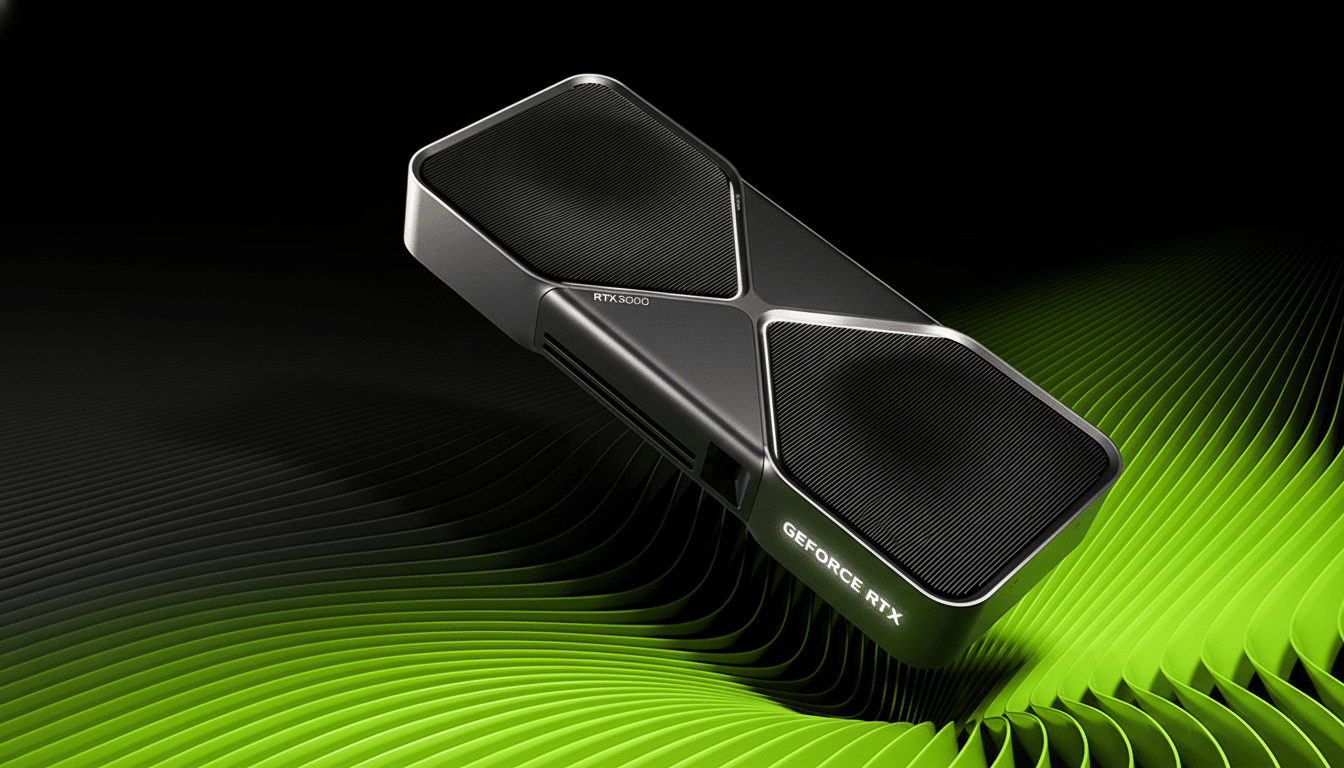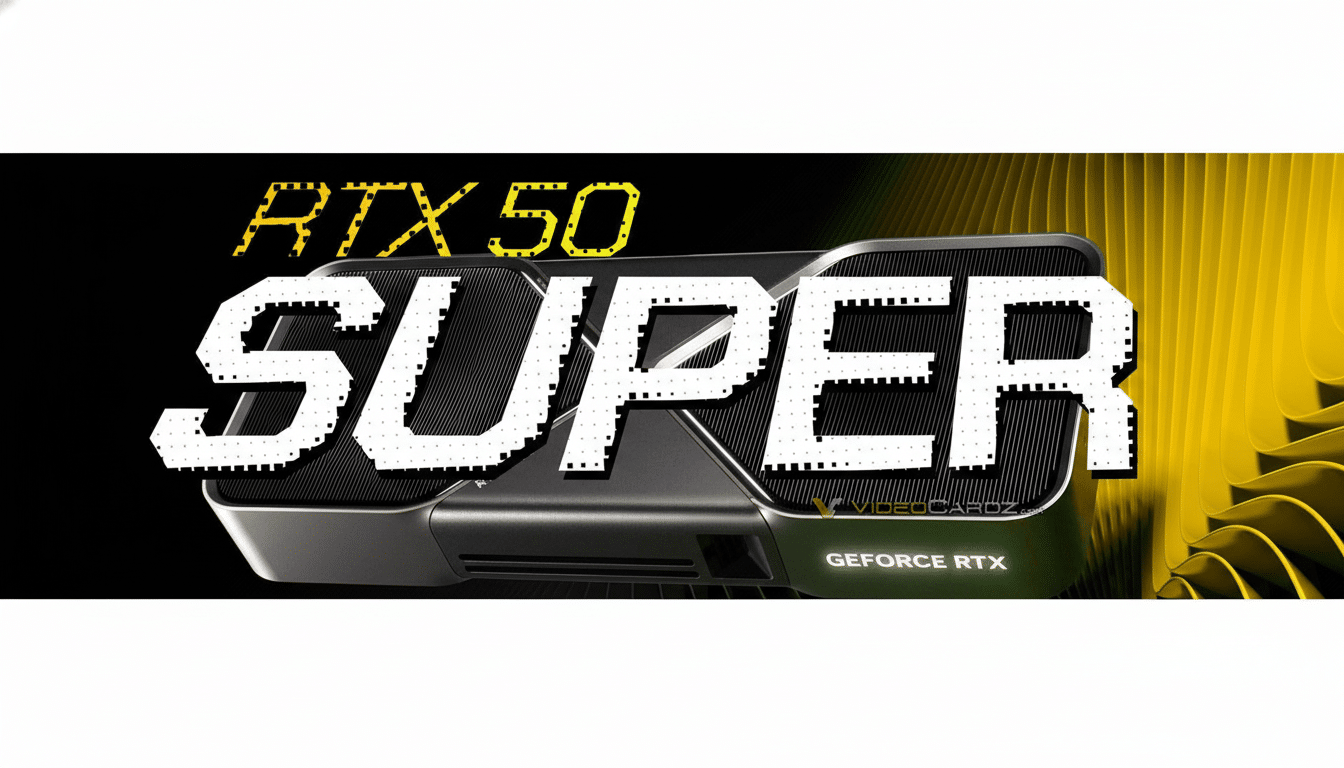Nvidia has reportedly canceled an RTX 50 Super refresh on account of the next‑gen GDDR7 memory squeeze, so goes the wave of speculation. The rumor mill is buzzing, yet there’s nothing official and the company has not even announced a 50‑series Super‑branded lineup. Here’s what is actually known — and possible — about the rumor and the realities behind it.
What Caused the Cancellation Rumor and Its Source
The most recent accusation comes from Uniko’s Hardware, which has labeled the story as speculative and blames the supposed cancellation on a lack of high‑capacity GDDR7. The implication is that higher-density memory packages—referred to in posts as “3GB” per chip—are being earmarked for flagship mobile parts and professional cards, leaving little remaining to feed a desktop Super refresh.

Crucial context: Nvidia has a celebrated history of mid‑cycle “Super” refreshes that readjust price‑to‑performance in the stack. For context, the Super series gained ~5-15% in the previous family depending on SKU — mostly via core count increase / clocks, and maybe a faster memory clock or two. It’s a known playbook to stand up the lineup mid‑generation without having to completely spin new dies.
GDDR7 Supply and the AI Crunch Impacting GPUs
GDDR7 is the star memory tech for next‑gen gaming GPUs, with signaling tweaks allowing speeds to reach 32Gbps and bandwidth uplifts of about 30% compared to the fastest GDDR6X we currently have in our PCs. The highest‑density chips are always in short supply and expensive early in a new memory cycle, as yields develop and packaging ramps.
Now, layer on the AI boom and the squeeze grows tighter. Memory makers Micron, Samsung, and SK hynix are pouring huge capacity and capital investments into HBM for its applications in AI accelerators to generate much more healthy margins than GDDR used in consumer. TrendForce analysts have warned of shortages and double-digit price hikes across various DRAM categories previously as demand for AI has outstripped supply. That pressure can spill over to GDDR7 even if on a different product line since fabs, packaging, and logistics are shared.
And there’s talk that some sellers actually suspended or capped price quotes for certain memory products during truly insane bouts of volatility in the market, which jibes with what system builders have reported to us off the record. In combination, it’s believable that higher‑capacity GDDR7 might be limited and allocated to halo or professional SKUs first.
Cancellation or Delay, What’s More Likely for Nvidia
Flat‑out cancellation feels strong. Nvidia has released large GPUs in the face of worse supply droughts (cough, RTX 30 at launch phase) by biting the bullet and accepting low initial volumes to goose forward-manufacturing-buffer stock. A delay, a leaner Super lineup or a tiny spec tweak (say, if it stuck with lower‑capacity modules on some SKU) would be the more common responses when memory is limited.
Another lever: segmentation. Nvidia might work the extra performance into a Super card where the uplift isn’t pegged entirely to denser GDDR7, with those higher‑density modules reserved for workstation‑class parts. Board partners may also play with both PCB designs and memory configurations to help hit targets as supply settles down.

Why a Super Refresh Still Counts for PC Gamers
Mid‑cycle refreshes can be used to combat changing competition and price points. For those who buy into the volume-centric midrange, a 10-15% bump could reset the value equation versus competing GPUs. If AMD’s next wave succeeds in hitting hard on price for performance, Nvidia gains room to adjust its own lineup swiftly. Super branding is a replicable, low‑friction way to make that happen.
On the tech front, this extra bandwidth headspace of GDDR7 is a meaningful handle for both raster and ray tracing performance, particularly in an age when games are starting to make heavier use of memory throughput. That is exactly the sort of spec that makes a refresh sing with enthusiasts.
Reading the signals for any forthcoming Super series
Until Nvidia or its board partners tell us otherwise, take cancellation chatter with a grain of salt. In addition, indicators to keep an eye on include:
- Regulatory filings for new board IDs
- Memory vendor roadmaps detailing density/availability milestones
- AIB BIOS database leaks
If a Super series is alive, it typically leaves traces in partner ecosystems long before an official unveiling.
If the rumor turns out to be true, there’s an easier practical implication: Current RTX 50 cards would stick around on a shelf a bit longer and price—rather than new SKUs—would be the main tool used to compete.
With supply constrained and there not being much pressure at the very top of the stack, broad price cuts would appear less likely to take place there, but the middle tends to see movement given how competition often tries to jockey for share.
Bottom line on the RTX 50 Super cancellation rumors
There’s a plausible supply‑chain story behind the claim, but no hard evidence that Nvidia has shuttered an RTX 50 Super refresh for good. A shortage of memory, particularly concerning high-density GDDR7, might force it to postpone or revise plans — but history says delay or staggered releases would be more likely than cancellation. For now, however, the only thing that is clear to see is nothing is really too clear just yet, and it will be worth watching memory suppliers and leaks from partners for that anticipated next step.

